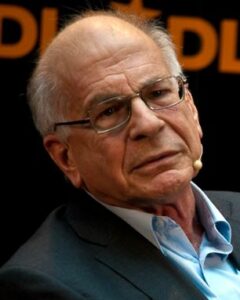Discovering DNA Structure
 Erwin Chargaff (1905-2002) was born in what is now Chernivtsi, Ukraine (then part of the Austo-Hungarian Empire). His family was of the little-known Bukovinian Jewish community that blended elements of Ottoman, Romanian, Austrian, and Ukrainian culture and had a mix of Ashkenazi and Sephardi heritage and practice. During World War I, the family moved to Vienna, where Chargaff went on to study chemistry. In 1925, he took a job as professor of organic chemistry at Yale University. He moved to the University of Berlin in 1930 to head the chemistry lab for the bacteriology and public health department. During this time, he made some important findings about bacterial membranes and lipids. When the Nazis came to power, Chargaff was forced to resign and fled to Paris. After spending a couple of years doing research at the Pasteur Institute, Chargaff returned to the States to become a professor at Columbia University for the next four decades. This is where he did some of his most famous work, including on the mechanism of blood clotting. His main focus, however, was on the chemistry of mysterious DNA. He soon discovered that DNA always contained equal amounts of the nitrogen bases adenine and thymine, and equal amounts of cytosine and guanine, suggesting that the two sets pair up. (This would become known as the first of “Chargaff’s Rules”.) His 1950 paper was instrumental in allowing Watson and Crick to solve the puzzle of DNA structure just a few years later. In fact, it was a conversation that Chargaff had with Watson and Crick in 1952 which led them to deduce DNA’s double-helix structure. Not surprisingly, Chargaff protested when Watson and Crick won a Nobel Prize while he was excluded. Chargaff did win many other prizes, including the Pasteur Medal, the Heineken Prize, and the National Medal of Science. After retiring from Columbia, he continued to do research at the Roosevelt Hospital until the age of 87! Chargaff was highly critical of genetic engineering and biotechnology, saying that it would inevitably be abused and lead to a “molecular Auschwitz”. (Many today would say he was right!) Chargaff is often considered one of the fathers of biochemistry, and “Chargaff’s Rules” are still a fundamental concept taught in biology classes today.
Erwin Chargaff (1905-2002) was born in what is now Chernivtsi, Ukraine (then part of the Austo-Hungarian Empire). His family was of the little-known Bukovinian Jewish community that blended elements of Ottoman, Romanian, Austrian, and Ukrainian culture and had a mix of Ashkenazi and Sephardi heritage and practice. During World War I, the family moved to Vienna, where Chargaff went on to study chemistry. In 1925, he took a job as professor of organic chemistry at Yale University. He moved to the University of Berlin in 1930 to head the chemistry lab for the bacteriology and public health department. During this time, he made some important findings about bacterial membranes and lipids. When the Nazis came to power, Chargaff was forced to resign and fled to Paris. After spending a couple of years doing research at the Pasteur Institute, Chargaff returned to the States to become a professor at Columbia University for the next four decades. This is where he did some of his most famous work, including on the mechanism of blood clotting. His main focus, however, was on the chemistry of mysterious DNA. He soon discovered that DNA always contained equal amounts of the nitrogen bases adenine and thymine, and equal amounts of cytosine and guanine, suggesting that the two sets pair up. (This would become known as the first of “Chargaff’s Rules”.) His 1950 paper was instrumental in allowing Watson and Crick to solve the puzzle of DNA structure just a few years later. In fact, it was a conversation that Chargaff had with Watson and Crick in 1952 which led them to deduce DNA’s double-helix structure. Not surprisingly, Chargaff protested when Watson and Crick won a Nobel Prize while he was excluded. Chargaff did win many other prizes, including the Pasteur Medal, the Heineken Prize, and the National Medal of Science. After retiring from Columbia, he continued to do research at the Roosevelt Hospital until the age of 87! Chargaff was highly critical of genetic engineering and biotechnology, saying that it would inevitably be abused and lead to a “molecular Auschwitz”. (Many today would say he was right!) Chargaff is often considered one of the fathers of biochemistry, and “Chargaff’s Rules” are still a fundamental concept taught in biology classes today.
Lag b’Omer Begins Saturday Night!
The Hidden History of Lag b’Omer
Reincarnation in Judaism (Video)
Words of the Week
There are two nuclei that man should never have touched: the atomic nucleus and the cell nucleus. The technology of genetic engineering poses a greater threat to the world than the advent of nuclear technology.
– Erwin Chargaff


